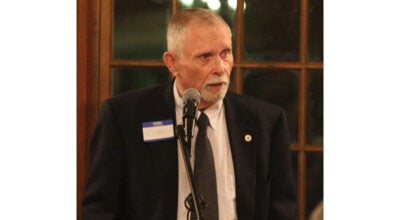LOOKING BACK: Southampton women to vote — for the first time
Published 5:02 pm Wednesday, October 23, 2024

- (Photo courtesy of Metro Creative Graphics Inc.)
|
Getting your Trinity Audio player ready...
|
In October 1920, several meetings were held in Southampton County in reference to women of the county who were anxious to be instructed in the proper procedure to be followed in registering and voting. In every section of the county, women were showing interest in voting and were urging their families, friends, and neighbors to be ready to assume their obligation and privilege to vote. A woman’s right to vote, for the first time, ever, was given to her by the recently established Nineteenth Amendment to the United States Constitution.
On May 21, 1919, the United States House of Representatives passed the proposed amendment and two weeks later the United States Senate followed with its approval.
(To be in accordance with the U. S. Constitution, a two-thirds vote by both the House of Representatives and the Senate is required for a proposed amendment to be forwarded to the States for ratification. And, in accordance with the United States Constitution, in order for a proposed amendment to be ratified and to actually become law, three-fourths of the states must approve the measure.)
In the year 1920, with forty-eight states in the Union, three-fourths equated to thirty-six states. On Aug. 18, 1920, when Tennessee became the 36th state to ratify, the amendment was adopted.
At that time, it was expected that the “woman vote” in Southampton County would be a considerable factor in the upcoming November elections. As expected, women were going to take an effective part in national, state, county, and municipal politics — for the first time.
Of primary importance at that time was the national election for President of the United States. Republican Incumbent President Calvin Coolidge, of Massachusetts, was running for a second term against Democrat John W. Davis, of West Virginia. (Calvin Coolidge was elected.)
At the state level, citizens were being called on to vote on amendments to the Constitution of VIRGINIA: Enable the Virginia Legislature to issue bonds for improvement of Virginia highways. Allow women to serve on local school boards. Permit any county or jurisdiction in the state to levy any amount necessary to provide sufficient school funds. Permit the Legislature to provide for compulsory education of children of school age. Permit cities and towns to change their current forms of government to the business-like city manager plan.
During the month of October 1920, a series of meetings were held:
At Drewryville, an interesting and largely attended voter education meeting was held with S. P. Johnson as chairman. There were speeches by F. E. Pope; Reverend Mr. Northern; Supervisor E. M. Harris, of Branchville; County Superintendent of Schools R. M. Newton; John Crump Parker and Major R. E. L. Watkins, of Franklin; and Mrs. Bessie Wills, of Courtland.
In Franklin, a splendid crowd of women filled the Franklin High School Auditorium in a similar meeting. Honorable E. Frank Story presided. After the invocation had been pronounced by Reverend J. A. Chapman, there were four-minute talks by John C. Parker Jr., Reverend Francis R. Lee, and Paul Scarborough. Judge James L. McLemore, Mrs. McLemore, and Senator J. E. West of Suffolk were honored visitors.
In Courtland, the women of the town were taking an active interest in the upcoming general elections. Two women of the town had already paid their capitation taxes and were ready to register. The Tidewater News published a list of Courtland women that had paid their taxes preparatory to registration: Bessie M. Wills, Eunice W. West, Lutie G. Smith, Pattie W. McLemore, Alice A. Crawley, Charlotte Crawley, Mary F. McLemore, Jennie H. Brooks, Rebie Whitfield, Annie J. Whitfield, Lila W. Joyner, Mabel V. Raiford, Clare W. Parker, Emily B. Joyner, Fannie G. Bell, Alice V. Eley, and Elizabeth Bell.
At Ivor, a good meeting was held in the Ivor High School auditorium. Honorable T. A. Sauders, chairman of the Southampton County Democratic Executive Committee arranged the meeting. Mrs. J. W. Reams acted as secretary. Mrs. E. Wistar Raiford led the meeting in prayer. Speakers in support of the democratic ticket spoke: Mrs. J. W. Reams, Dr. John S. Gale, John C. Parker Jr., Superintendent R. M. Newton, and Paul Scarborough.
Some women of the South were showing little interest in the privileges conferred upon them by the passage of the nineteenth amendment to the Federal Constitution. However, Southampton women were evidently ready to exercise their right to vote; apparently, questions of public interest were at the heart of their concerns. And, evidently, the men of Southampton County expected to see women participate intelligently and effectively in all political questions, especially those that directly affect the educational and civic welfare of the community.
CLYDE PARKER is a retired human resources manager for the former Franklin Equipment Co. and a member of the Southampton County Historical Society. His email address is magnolia101@charter.net.





